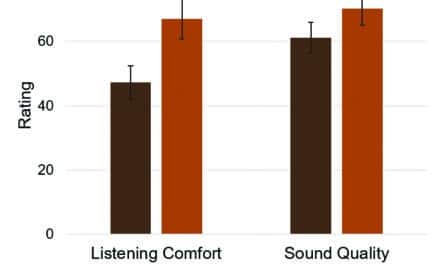The 9th US Circuit Court of Appeals has ruled in favor of the plaintiff in KM v. Tustin Unified School District (No. 11-56259). The ruling is a victory for students with hearing loss, who can now have access to Computer-Assisted Realtime Transcription (CART) as an accommodation in K-12 classrooms.
The Alexander Graham Bell Association for the Deaf and Hard of Hearing (AG Bell) filed an amicus brief in the case in support of KM, a high school student who is deaf and uses cochlear implants and speechreading to communicate.
In the case, the Court of Appeals reversed summary judgment against KM and another high school 
student who sought CART, a service in which a transcriptionist provides live captioning, from their school districts as an accommodation under the Americans with Disabilities Act (ADA). The Court ruled that compliance with the Individuals with Disabilities Education Act (IDEA) or Section 504 of the Rehabilitation Act of 1973, two federal laws that provide special education services and accommodations for students with disabilities, does not mean compliance with the Americans with Disabilities Act (ADA). The requirements of the ADA are broader and more stringent. Under the ADA, public schools must provide students who are deaf and hard of hearing with equal and effective communication.
KM was diagnosed at 13 months with bilateral severe to profound hearing loss. Her parents chose a listening and spoken language outcome for her, and KM received a cochlear implant in her right ear when she was 3 years old and then received a second cochlear implant at age 15.
After her seventh grade teacher noted that KM was “lost” during class discussions, the family requested that her school district provide her with CART for her classes. The school denied the accommodation, noting that as long as a student with a disability is passing her classes, no accommodation is necessary under precedent interpreting the IDEA. The family filed an unsuccessful due process compliant.
KM brought suit against the school district in a federal court in California not only under IDEA, but also under the ADA and Section 504 of the Rehabilitation Act of 1973. While the district court was sympathetic to KM, the court agreed with the school district that as long as KM was passing her classes, no further accommodation was necessary.
KM appealed to the 9th US Circuit Court of Appeals, at which time AG Bell filed an amicus brief with the court in her support. AG Bell argued that the ADA’s standard is different from that of IDEA, and that CART interpreting is necessary for students who are deaf to receive full and equal access in the classroom. AG Bell also noted that courts have held that captioning is necessary for access for individuals who are deaf and hard of hearing in a variety of contexts, such as for watching movies and participating in courtroom proceedings. AG Bell argued that access for the classroom was no different. The US Department of Justice also filed an amicus brief in the case, essentially agreeing with AG Bell’s arguments.
“This case sets a national standard for all public schools requiring them to give requests for CART by students who are deaf and hard of hearing primary consideration as an auxiliary aid when needed to provide equal and effective communication access. Public schools can no longer hide behind the IDEA which only requires a basic floor of opportunity,” said attorney David M. Grey, who represented KM and another student in the case.
SOURCE: The Alexander Graham Bell Association for the Deaf and Hard of Hearing (AG Bell)




